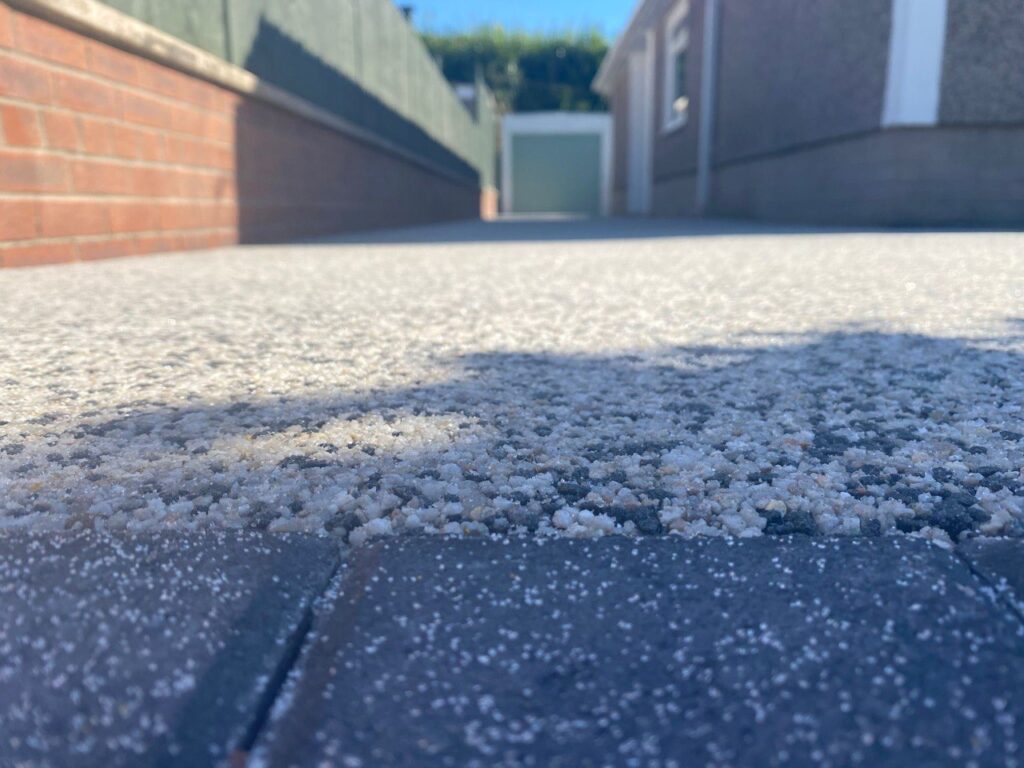How Block Paving Works in Cold, Snowy, and Wet Climates
Introduction
Block paving is a popular choice for driveways due to its durability, aesthetic appeal, and ability to withstand various weather conditions. However, in areas with colder winters, heavy rain, and occasional snow, many homeowners question whether block paving is suitable for their climate.
For property owners in Banstead, Surrey, understanding how block paving performs in wet and frosty conditions is essential for maintaining a long-lasting and visually appealing driveway. This article explores the benefits of block paving in challenging weather conditions and how to ensure its durability throughout the seasons.
Key Takeaways
- Block paving is resistant to frost, heavy rain, and snow when installed correctly.
- Proper drainage prevents water pooling and surface damage.
- Choosing high-quality materials ensures better durability in extreme weather.
- Regular maintenance extends the lifespan and appearance of a block-paved driveway.
- NS Driveways Banstead provides expert block paving installation and maintenance in Banstead, Surrey.
How Block Paving Handles Cold, Snow, and Wet Conditions
Excellent Drainage Capabilities
One of the biggest concerns in wet climates is water accumulation, which can cause surface damage and lead to flooding. Block paving is designed with natural drainage properties, allowing water to flow through gaps between the blocks and into the sub-base below.
Benefits of block paving for wet conditions:
- Prevents puddles and standing water by allowing natural drainage.
- Reduces the risk of slippery surfaces in rainy or icy weather.
- Helps comply with Sustainable Drainage Systems (SuDS) regulations in the UK.
For homeowners in Banstead, Surrey, where rain can be frequent, ensuring that the sub-base is properly installed with permeable materials will improve the effectiveness of the drainage system.
Resistance to Frost and Freezing Conditions
Unlike solid concrete or asphalt, which can crack under freeze-thaw cycles, block paving is highly resistant to cold weather. The individual blocks allow for slight movement, which prevents structural damage from expansion and contraction during freezing temperatures.
How block paving withstands frost:
- Small gaps between blocks allow for natural expansion and contraction.
- High-quality materials prevent cracking or crumbling in extreme cold.
- Proper sub-base preparation reduces frost damage by improving stability.
Using sand-filled joints rather than cement-based mortar also helps in preventing frost-related cracking, as the sand allows for flexibility in extreme temperature changes.
Easy Snow and Ice Removal
Block-paved driveways are easier to clear of snow and ice compared to gravel or uneven surfaces. The uniform surface allows for:
- Simple shovelling without catching on loose stones.
- Effective use of grit and de-icing salt without damaging the surface.
- Better traction for vehicles and pedestrians in icy conditions.
To prevent damage, using a rubber-bladed shovel or a plastic snow pusher is recommended instead of metal tools that may scratch the surface.
Strong and Durable in Heavy Rainfall
Frequent rainfall can cause erosion and waterlogging in some driveway materials, but block paving remains structurally sound due to its interlocking system. This makes it highly effective in handling constant exposure to moisture without weakening over time.
Key factors that improve durability in wet weather:
- A properly compacted sub-base prevents sinking or displacement.
- Sealed joints stop water from penetrating beneath the blocks.
- Regular maintenance keeps drainage channels clear and prevents weed growth.
By choosing weather-resistant blocks, such as clay or concrete with a protective sealant, homeowners in Banstead, Surrey, can ensure their driveway remains strong and functional in all seasons.
How to Maintain a Block-Paved Driveway in Cold and Wet Climates
Regular Cleaning and Debris Removal
Keeping the driveway free from leaves, dirt, and moss helps prevent blockages in the drainage system. Pressure washing once or twice a year removes grime and keeps the surface looking fresh.
Reapplying Jointing Sand
Over time, rain and wind can wash away the sand between the blocks, reducing stability. Re-sanding the joints after cleaning helps maintain the integrity and load-bearing strength of the driveway.
Applying a Protective Sealant
A high-quality sealant helps:
- Repel excess water and prevent damp penetration.
- Reduce moss and algae growth, which can make surfaces slippery.
- Improve resistance to frost and stains from oil or de-icing salt.
Checking for Movement or Uneven Areas
Freezing and thawing cycles may cause slight movement in blocks over time. Regular inspections and minor adjustments ensure the surface remains even and structurally sound.
Why Choose NS Driveways Banstead?
For expert driveway installation and maintenance in Banstead, Surrey, NS Driveways Banstead offers:
- Professional block paving installation tailored to wet and cold climates.
- Advanced drainage solutions to prevent water damage and improve safety.
- Durable, frost-resistant materials for long-term performance.
- Reliable aftercare and maintenance services to keep driveways in top condition.
Conclusion
Block paving is an excellent choice for driveways in cold, snowy, and wet climates due to its drainage capabilities, frost resistance, and durability. When installed correctly and maintained regularly, it provides a long-lasting, weatherproof surface that enhances both functionality and aesthetics.
For professional block paving services in Banstead, Surrey, NS Driveways Banstead offers expert solutions designed to withstand the toughest weather conditions. Contact us today to discuss your driveway project and ensure a high-quality installation built to last.
Call us on: 01737 926 997
Click here to find out more about NS Driveways Banstead
Click here to complete our contact form and see how we can help with your driveway needs.

